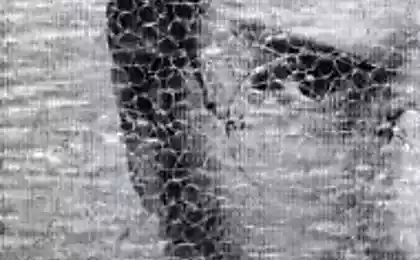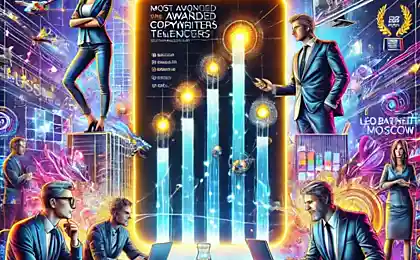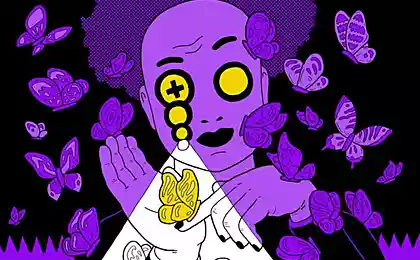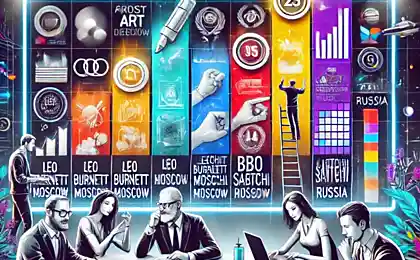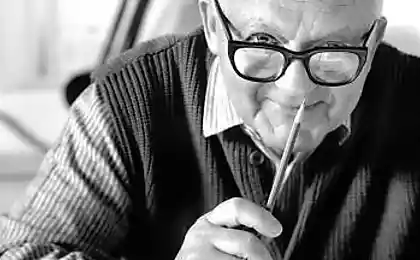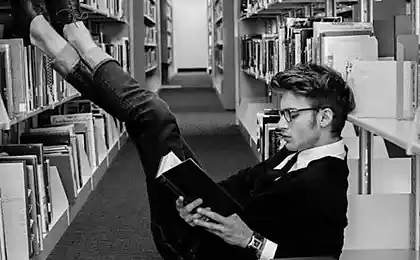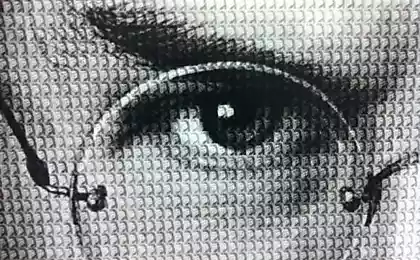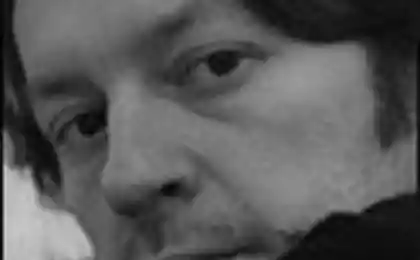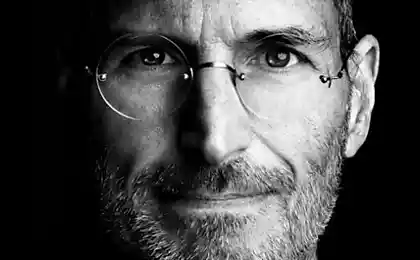528
Ilya budraitskis : Today only the rich moral revived at the expense of others
Forty million fifty two thousand nine hundred eighty eight
The novel is Ayn Rand "Atlas shrugged" is one of the most influential artistic works of our time. According to surveys of the library of Congress, it is second only to the Bible the book that changed the lives of American readers. The project "open reading" publishes an interview with historian and writer Ilya Budraitskis on the moral crisis in the middle of the last century, authoritarianism, Ayn Rand and the current status of the bourgeoisie. I'm always surprised by the people who read this novel. After all, no aesthetic pleasure from the process not to, not to mention the volumes of two weighty volumes.
— I read this novel rather for research purposes. This book is wordly poorly written, and then miraculously stands out. "Atlas" Rand, however, not quite literature — it is a propaganda piece that is a kind of mirror reflection of socialist realism in its worst specimens. There are characters-function, individual characteristics which correspond to their political role. For example, the bad characters who adhere to wrong ideas, unhealthy complexion, shifty pig's eyes, positive, opposite — tall, beauty, sexuality, healthy teeth, and mostly they are more generally blue-eyed and blond (which Ayn Rand especially emphasizes). However, given her fascination with Nietzscheanism and various hateful ideas of his time, this is understandable.
— And how do you explain the huge success this novel enjoyed around the world?
— This novel is interesting, of course, because of its political message, because in isolation this message to discuss it quite difficult. The message that has a powerful uplifting effect. And this too has similarities with the works of socialist realism as socialist realism not just describes a certain reality and its inherent specific conflicts, but must charge the vivacity of one of the parties to the conflict. In this respect, of course, a novel by Ayn Rand written precisely for that purpose: it needs to inspire confidence in those who have the confidence in a specific historical moment lost. And it's not by coincidence that this novel appears in the late 40-ies. Its timeliness, incidentally, noted in his enthusiastic letter to Rand, Ludwig von Mises.
Empathy, erected into a principle purified from personal motives, is a dangerous Chimera. Moreover, the Mirage of empathy lead to various kinds of personal violence, tyranny, suppression of a person's ability to think independently and make decisions. Knowing yourself and your own experience, people are not exempt from morality, but I find it reasonable.The author of "Atlanta" draws a big picture of the confrontation between the crazed supporters of the welfare state and government regulation — and few "Atlanteans", the best people that rise above the gray mass and possess a mind capable of transforming reality. This feature of the mind, according to Rand, is the distinguishing feature of the capitalist. In General, capitalism "Atlanta" is a little similar to the logic of capitalism that exists in reality. That is, the capitalists, "Atlanta" are people who are very similar to these capitalists, and their functions do not correspond to the functions that real capitalists are fulfilling in the market. There it is primarily about creativity, about the production, but not on capital itself. It is no coincidence that the bankers almost never appear in the book and certainly not the main characters.
— What were the historical conditions at the time of publication of the book? As they reflected on the content of the novel?
— This piece was created at a time when almost the whole world — and not only Eastern, but Western part of it — finally began to depart from the principles of "free market", the former unquestioned dogma of the elites for decades. It is this rejection that led to the terrible catastrophe — not only material but also moral ones, which Rand describes in his novel. And a moral crisis for the author, "Atlanta" obviously is the key. And there is an interesting point.
If we turn to the origins of liberalism, we can see that moral issues have always occupied an important place — but the answers were quite unlike the version of Ayn Rand. For liberals, morality as something that exists beyond our experience, beyond our sensory world, has always been the ideological figure who needs to be pushed out as the rationalization of personal existence. The liberal model of progress assumes that human development is the way the continuous rationalization of the natural desire for maximum personal comfort. From this point of view morality as something that rises above the individual, and sets some General categories that cannot be rationally understood, stands in the way of progress.
It is worth remembering Mandeville, author of the famous "fable of the bees", written in the early XVIII century, which makes at the end of this work provocative for its time, concluded that private vices lead to public good. We are in this fable is about a group of bees, each with a huge number of disadvantages. Once the bees decide to feel morale and strong-willed to change their life. And when they do, it turns out that these private vices formed one big advantage, in a kind of natural logic, which makes possible a decent and rich life for all. That is, the benefit comes when we stop putting him on a pedestal, in that moment, when we refuse it as from a principle, daliushu over each.
Another important work is "the Theory of moral sentiments" by Adam Smith, where the main subject of discussion is the problem of human empathy. What makes us feel the pain of others as his own? And do we feel really is pain? Smith comes to the conclusion that no, really we are experiencing your own feelings, your own experience, the reflection of which in the most vivid form we find in another.
Liberalism is an authoritarian ideology, because if you say that you don't mind that you have certain values that lie beyond sensory experience and personal success, it means that you're just trying to put in place the reality in which these principles prevail and are obviously part of human nature, his own illusion.From here it is easy to conclude that empathy, erected into a principle purified from personal motives, is a dangerous Chimera. Moreover, the Mirage of empathy lead to various kinds of personal violence, tyranny, suppression of a person's ability to think independently and make decisions. Knowing yourself and your own experience, people are not exempt from morality, but I find it reasonable. Just as discovering your own passion, not only need willpower to get rid of them, but instead should learn how to balance, to benefit from them. This unstoppable process of rationalizing the individual is a fundamental element of liberal philosophy and does not involve collective "moral crises".
— What is the basis of this moral crisis of humanity in the novel Ayn Rand?
— That people stop using their own mind, hoping the mind of someone else who will come and take decisions for them. Thus, disturbed and broken the utilitarian model of the mind, which is always individual, always focused on the expansion of space and comfort measures surrounding the validity of the category of use. This is the "use of reason" turns from the mainstream of development of human society in a kind of aristocratic privilege that belongs to just "Atlanta". What was natural and inevitable, becomes a virtue only a few have.
The "moral crisis" associated with the mass loss of mind similar to the epidemic of dangerous disease, which turns the rule into the exception and madness in the rule. Where did this attack?
Since the beginning of the nineteenth century the world in the interpretation of the liberals, became more reasonable, predictable and rich. The progressive expansion of understanding of their own use has made people more cautious, led them to reduce the level of violence and confrontation. So, for liberals, the state is not connected with the idea of a fundamental gap between the natural and the civil state. The state is the product of evolution, of a gradual historical rationalization when people first make the laws, so that they could coexist with each other and defend each other, and then gradually come to the conclusion that for personal use should not build a protection position relative to the other, and the position of the societies. It is this interaction, voluntary exchange is the Foundation of freedom. That is, freedom is not a universal quality, not a universal value, and what is acquired in the process of self-realization as a market agent. And in this respect it seemed that the world really is becoming extremely reasonable. The war gradually excluded from its menu or put to the periphery, i.e. where people have not yet learned enough to think rationally, as in developed countries.
This idyll is disturbed in the early XX century, when humanity catches up with the most terrible at that time, the war of all. The war hasn't yet seen the global economic crisis and a new war. It would seem that all three of these interconnected disasters clearly indicate any violations of the model. For example, one can conclude that a free economy does not reduce violence, but rather leads to its increase. And critics of the free market convincingly argued why this is happening.
The liberals are doing to this other conclusion, which is predefined by their extremely schematic model of progress. That is, if people are going a certain way of rationalization, then return to a state of dullness and barbarism, it is due to the fact that they at some point lost their mind. People are abandoning the free market and, for example, in America, come to the ideas of Roosevelt's "New deal", which for liberals, the Austrian school of Economics in the manner of Ayn Rand, was not an alternative position, but a kind of madness.
That is, in this respect, liberalism is an authoritarian ideology, because if you say that you don't mind that you have certain values that lie beyond sensory experience and personal success, it means that you're just trying to put in place the reality in which these principles prevail and are obviously part of human nature, his own illusion. Are you sick of the fact that Mises calls the "Fourier syndrome". The problem of "Fourier syndrome" is that, unlike other syndromes, to the end have not been studied and is unknown drug that it treats the best way. Although, of course, later, with the development of medicine in the era of neoliberalism, these drugs appeared, such as "shock therapy": treatment that is associated with the bringing of the person using electrical discharge "radical reforms" in an adequate state of perception of reality.
— What is the liberal point of view can save you from this collective "moral" epidemics?
— From a liberal point of view, can not be called a recipe, which is suitable for everyone — that is not to say that it is necessary to take some measures and all of these measures will be good. It is necessary that each returned feeling associated with the utilitarian mind, and then the moral crisis could be overcome. That is an awesome way according to this model, the ruin is in heads. Ayn Rand shows where the boundary lies between madness and reason, and it is very clearly specified recipes may be unsuitable for society, but for the individual: how people should view the world, how he should treat others as he needs to build his life that he must think about love, about the relationship between man and woman, relationship with his family, how to understand the art of this teaching runs like a red line through the entire book.
Rand, in principle, like re-opens the whole range of issues that lie beyond sensory experience, which for liberals, kind of been closed a long time ago. And she opens his extremely authoritarian method, because humanity, which in the face of their specific representatives somehow gets freedom from this terrible syndrome, had to be in an accelerated pace to walk this road of rationalizing again, for a single life. The way of nature turns into an act of heroism and a moral feat.
This book love people like Chichvarkin, who think their own destiny as a kind of moral feat. This is even more important, of course, for Russia, where the moral issues in front of all the people who became wealthy in the 90s or early 2000-ies, are particularly acute. And it is important for them to understand why they received such an incredible opportunity for a very short period of time. Now the answer is clear — because they are the "Atlanteans" who found this internal resource for irrational breakthrough in the world of rationality.That is what Rand is trying to say Atlantians — they make a moral feat. Because they do not inherit some rational traditions that are passed down, reproduced and developed, and on the contrary, they must overcome the poisoned diseases reality, to come to another, lost and true reality. And why such a breakthrough is always an amazing way looks extremely irrational and extremely encouraging. That is why this book is so hot, so its like people like Chichvarkin, who think their own destiny as a kind of such a moral feat.
This is even more important, of course, for Russia, where the moral issues in front of all the people who became wealthy in the 90s or early 2000-ies, are particularly acute. And it is important for them to understand why they received such an incredible opportunity for a very short period of time, why these opportunities are rich in the West had received over several generations, and they were able to get them for a couple of years. Now the answer is clear — because they are the "Atlanteans" who found this internal resource for irrational breakthrough in the world of rationality.
Another important point from Ayn Rand, associated with similar moral victory is a moral revival. Recently published a beautiful edition of the Russian translation of Sorel's "Reflections on violence", where he holds a very important thought associated with morality. For Sorel, the concept of moral crisis is defining it in relation to classes, communities. And his model in brief is that after the era of the revolutionary offensive of the bourgeoisie, when it is acted directly as a class, involved in the struggle for its domination over the others, she was the bearer of the fighting spirit, noble military "morality". But having won, the bourgeoisie gradually loses its direct class subjectivity, passing the function the immediate implementation of the domination and suppression by the state. And, passing these functions, it transfers with them and functions of violence. That is, the class violence now expressed not directly but it is mediated by the state. This leads to moral degeneration of the bourgeoisie, and with it its antagonist, the proletariat.
Morality in this case is associated with the collective struggle with violence, which is a necessary condition for moral regeneration. After all, in a situation of direct confrontation, the workers cease to be simply an appendage of production, cogs in the system — they gain a new identity and find a new morality that Sorel was called "morality." And this morality is born from them in a moment when, inspired by the mobilizing myth that they change their own destiny through a General and indefinite strike, which opens up the battlefield and goes further into the future, and further, its shape lost. This complete absence of utopian models from Sorel fundamentally insisted. He considered it more important to put in their place, the mobilizing myth that gives this important to the revolutionary bond between the past and the future.
— What does this mean in practice? What is the current status of the bourgeoisie?
— It turns out that actually, in the end of XX century the bourgeoisie as a whole is going through a moral revival. Because the neoliberal state, in a sense, is the transition from indirect violence, from the power of normalization, which is concentrated in the hands of the state, to what David Harvey calls the direct restoration of class power, when the bourgeoisie is once again receiving such a refreshing fighting spirit, returning her to memories of better days, by the end of the XVIII century. And figures such as Reagan and Thatcher, who died recently, and they are political giants, "Atlanta", which rise over the previous demoralizing politics of the welfare state.
But it is important to remember that the origins of neoliberalism go to a small group of intellectuals of the turn of 1950-60-ies — supporters of the "Austrian school", the predecessors of American neoconservatives, and, of course, those groups that were formed around Ayn Rand. They all dreamed of such a return to the noble spirit of the class offensive.
Rand, in principle, like re-opens the whole range of issues that lie beyond sensory experience, which for liberals, kind of been closed a long time ago. And she opens his extremely authoritarian method.In his book "the Reactionary spirit of" Corey Robin leads an interview he took William Buckley, the Patriarch of the American neoconservatism. He asks him about what would be the political choice he made today if I were young and Buckley responded with what would become a Communist. And he would have done it for the same reasons that he became an extreme conservative in the 1950s, because it was the spirit of fight, through it it was possible to feel this moment of the fight. And to be left, then, meant to him to be a conformist. So I think that reading Rand today is worth considering also in the context of this moral revival of the bourgeoisie.
The main problem is that this revival has a unilateral nature. The moral being revived at the expense of others only the rich. Sorel, by the way, wrote that it is not always the class violence leading to revolution. There are moments of economic decline, when the violence of a growing class of elites can lead to the opposite result — to an even greater degradation. And I think that even today, therefore, should be read Sorel and Marx in order to understand how this fighting spirit will enrich the society outside the narrow group of "Atlantis", which he inspires and calls for the final battle.
Source: theoryandpractice.ru
Is there life after death: the Facts and evidence
Ibrahim Hamato — the world's armless tennis player

